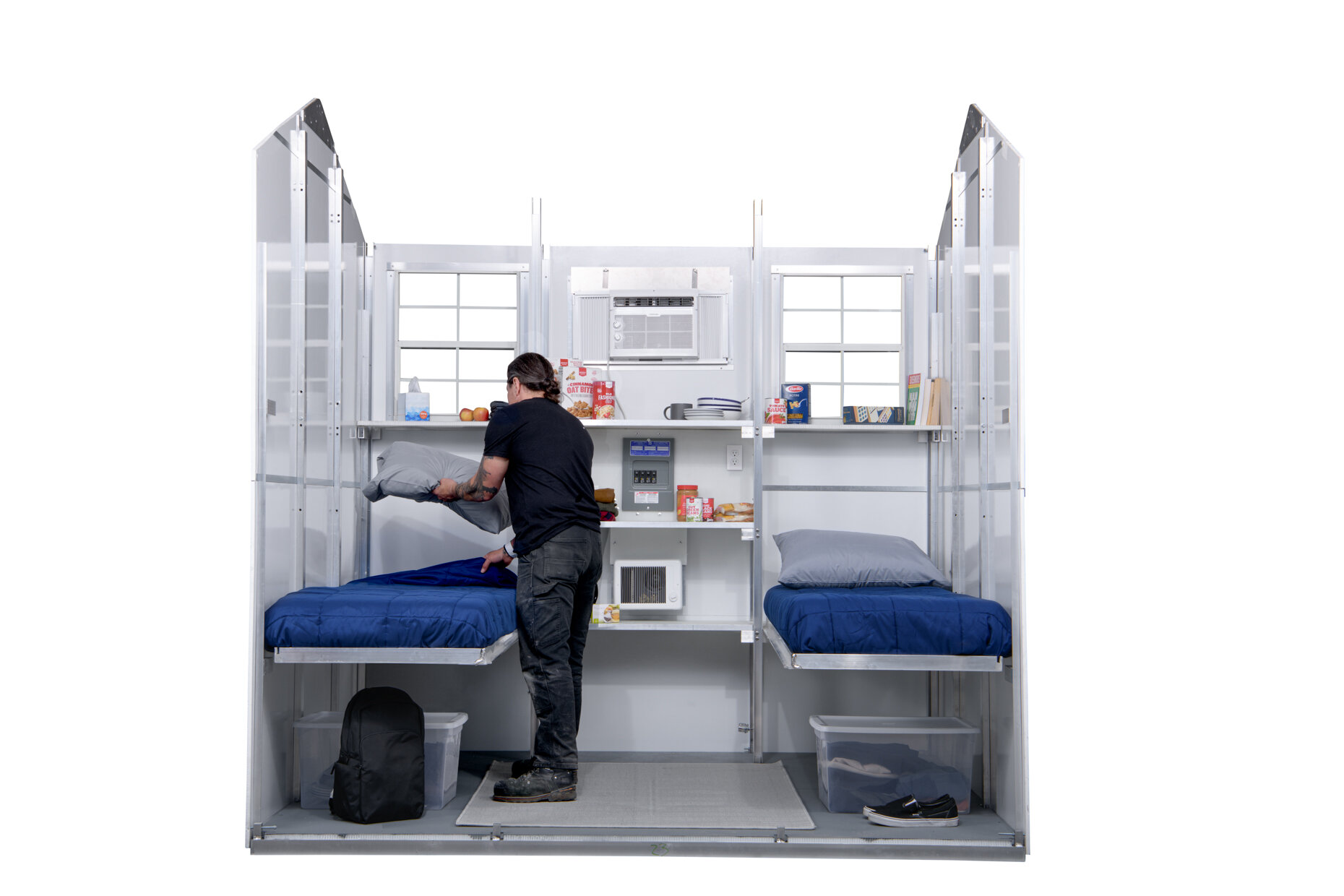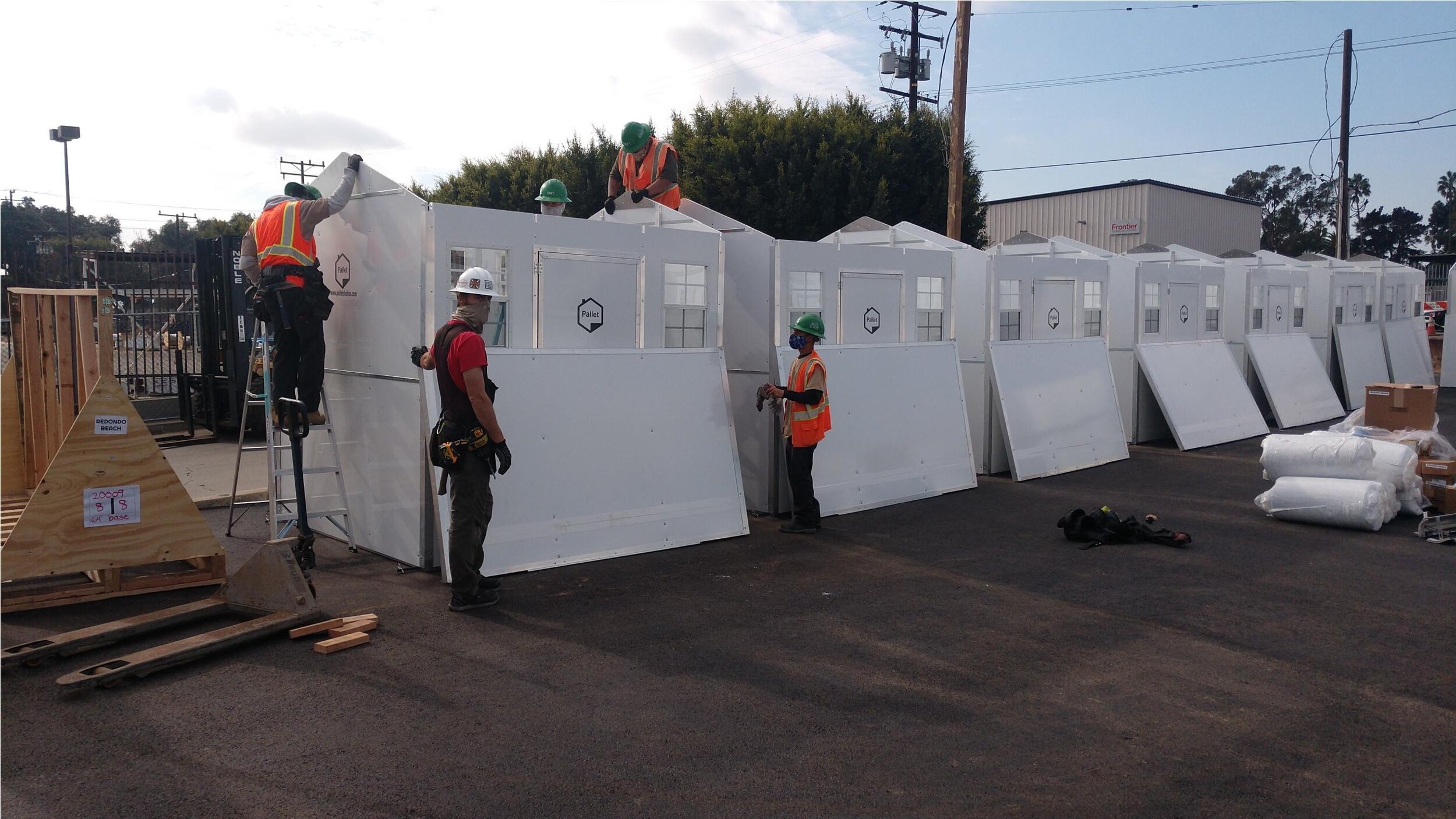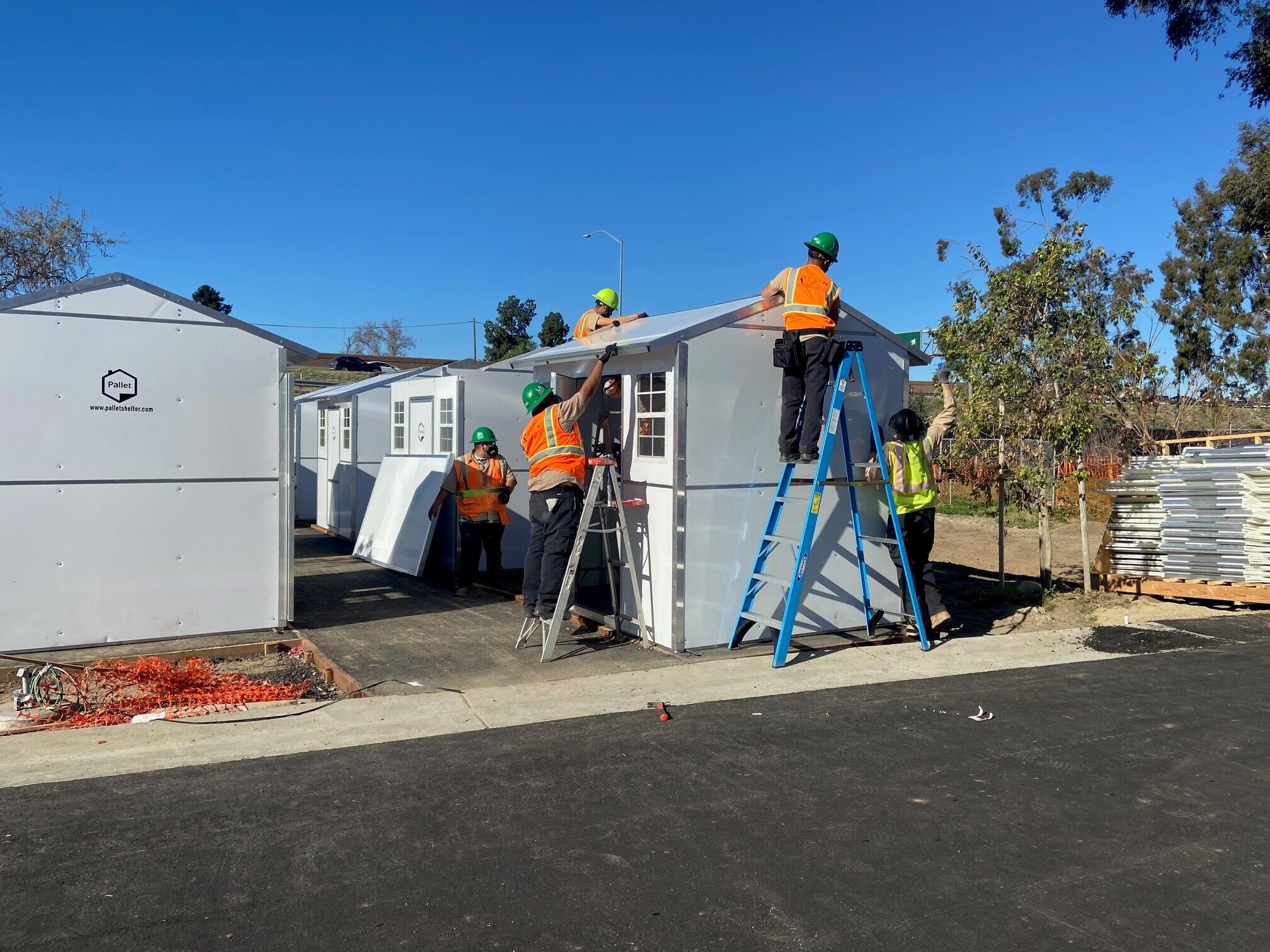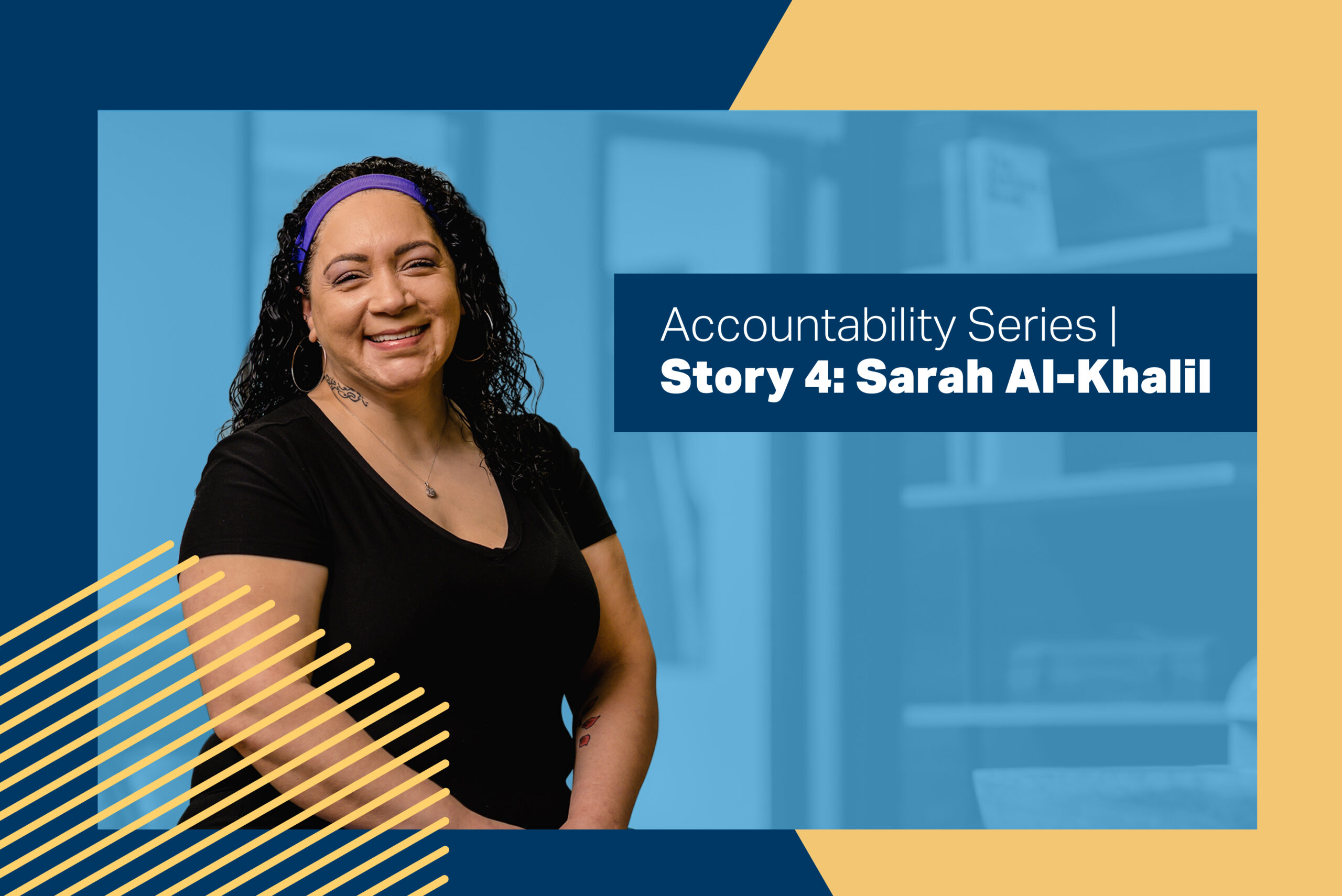Pallet and LA Conservation Corps Partnership to Bring Hundreds of Shelters for People Experiencing Homelessness
February 24, 2021
Access to transitional housing in the City of Los Angeles is growing thanks to a partnership between Pallet and the LA Conservation Corps. Moving forward, all Pallet shelter villages in the City of Los Angeles will be built by the LA Conservation Corps.
Pallet shelters offer individuals and families experiencing homelessness a dignified place to live as they work towards finding permanent housing. Through this union, youth Corpsmembers will gain valuable work experience and homeless Angelenos will have an alternative place to stay as they rebuild their lives.
“This partnership with Pallet is an exciting and hopeful way for the Corps to realize our goals of building resilience in young adults and supporting resilience in a variety of Los Angeles neighborhoods,” said Wendy Butts, Chief Executive Officer at the LA Conservation Corps. “This year has left so many people hurting, so if we can come together with partners in business, government and nonprofits to realize this great double bottom line of employment opportunities and affordable housing solutions, we are proud to be on board.”

64 sq. ft. Pallet shelter, front wall removed for interior visibility
Pallet’s Seattle-based manufacturing employees will manufacture 425 shelters and ship the panels to several assembly sites across Los Angeles, where Corpsmembers will complete the final assembly. Each shelter is self-contained and is outfitted with beds, shelving, climate control, electricity, and safety features. Each shelter can be assembled in less than 30 minutes with minimal tools and offer essential features compared to tents and other improvised shelter alternatives. Construction is set to begin Tuesday, February 23.
LA Conservation Corps is an environmentally focused youth development organization. They prioritize projects that improve the health of our environment and quality of life for all Angelenos. Corpmembers receive on-the-job training and paid work experience, education, and supportive services so they can begin to chart a path to a meaningful career.

Photo courtesy: LA Conservation Corps
“Pallet and LA Conservation Corps are meeting an immediate community need.”
Alex Lopez, Sr. Program Director at the LA Conservation Corps, is looking forward to the unique work site experience Corpmembers will gain by constructing Pallet shelters, “This is fast-paced, team-based work that lets them harness their critical thinking and problem-solving skills and at the end of even one day on the job site they see the difference they are making.”
Pallet Founder CEO Amy King considers the partnership to be a perfect match. Both parties are committed to ending unsheltered homelessness while providing job skills training for the marginalized.
“Working with Pallet and building these shelters for individuals experiencing homelessness strikes a chord that resonates with many of our Corpsmembers,” said Lopez. “Some of our Corpsmembers have experienced homelessness themselves so they understand how meaningful a safe space can be for someone.”
By working together, both Pallet and LA Conservation Corps are meeting an immediate community need. Homelessness is not a choice, and we believe everyone deserves a safe place to sleep at night. Pallet shelters provide a stability which is a key factor in bridging the gap between homelessness and permanent housing.

About LA Conservation Corps
The LA Corps is an environmentally focused youth development organization. We unleash the power of youth to restore the urban environment and preserve natural resources on the coast and in the forests and mountains surrounding Los Angeles. Corpsmembers make Los Angeles' underserved urban neighborhoods better places to live, work, learn, and play. They build parks and community gardens, plant trees, restore habitats, refurbish trails, clean alleys, recycle and work on other projects and more. In the course of restoring the environment for future generations, and serving the communities they live in, youth are empowered to chart their own courses out of poverty and toward a meaningful career through access to education, job training, and support services.


